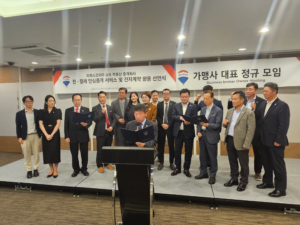When selling a building, there are many cases where the types of business are restricted for each unit, or the types of business are designated for each unit in the sales guide, etc., and the sales contract is concluded accordingly, or the types of business are designated according to the management group regulations and business can be conducted accordingly. In this way, restrictions on types of business within a commercial building are widely used because they guarantee the exclusive business rights of each purchaser or unit owner, while also preventing excessive competition within the commercial building.
As a method of industry restriction
① In the case where the initial seller enters into a sales contract with the prospective buyer and includes a special clause restricting the business type as part of the sales contract
② In case the lessee or his successor leases the commercial building and includes industry restrictions in the lease agreement
③ This may include cases where the management team or prosperity association of the relevant commercial establishment stipulates restrictions on the type of business through regulations.
Since these industry restrictions are in principle made through an agreement between the parties, they can be said to be valid under the principle of freedom of contract. However, since they may infringe upon the freedom of occupational choice and property rights guaranteed by the Constitution, the question is whether their validity should be recognized.
Our Supreme Court has stated that if there is an industry restriction agreement in a commercial building, not only the purchaser of the property but also the lessee, assignee, etc. are all bound by the industry restriction agreement, and unless a separate industry change procedure determined by the management team, etc. is followed, the industry restriction agreement remains in effect.
Regarding the geographical scope of the effect of an industry restriction agreement, our Supreme Court has ruled that a claim for prohibition of similar business due to a violation of an industry restriction agreement can be asserted against all stores located in the same building that normally forms the same commercial area, unless otherwise specifically provided for in the sales contract or management group regulations or other special circumstances.
Unless the industry restriction agreement is changed or abolished through management group regulations, etc., the industry restriction agreement should be considered to remain in effect for the duration of the commercial establishment. If the scope of the temporary effect is judged to be limited in a situation where there is no effective period for the industry restriction agreement in the management group regulations or sales contract, unexpected damages may occur to those who expect to monopolize the industry in the same commercial establishment and receive sales or tenants. Therefore, the scope of the temporary effect of the industry restriction should be limited under the strictest possible conditions. Even if the agreement is deemed valid, there is also the issue of how to ensure its effectiveness.
In cases of violation of industry restriction agreements in sales contracts, our Supreme Court has ruled that “since such agreements stipulate the necessary means to achieve the reasonable goals of promoting the convenience of apartment complex residents, increasing the common interests of merchants, and maintaining the smooth functioning of commercial buildings, they cannot be said to infringe upon the freedom of occupational choice or property rights guaranteed by the Constitution, nor are they against public order and morals. Also, such agreements cannot be said to be simply instructive or advisory in nature. Therefore, if a purchaser who has purchased a commercial building based on the above agreement changes the industry designated at the time of sale without permission after moving in, the sales company may exercise its right to terminate the agreement on the grounds of the purchaser’s failure to fulfill the obligation to refrain from unauthorized changes in industry.”
A competitor in the relevant business has the right to demand a business ban in order to prevent damage to business interests. In the end, if the industry restrictions by agreement are violated, the parties to the agreement can demand that the violation be stopped, the consequences eliminated, preventive measures taken, etc., and further, other sanctions stipulated in the agreement or regulations can be taken.

Attorney Lee Yong-hwa of Ubiz Law Firm has extensive experience and deep expertise in the real estate field. Through his long practical experience, he has handled a variety of real estate-related issues and provides reasonable and practical solutions to customers.
UBIZ Law Firm, 6th floor, 418 Nonhyeon-ro, Gangnam-gu, Seoul 02-3452-9290




